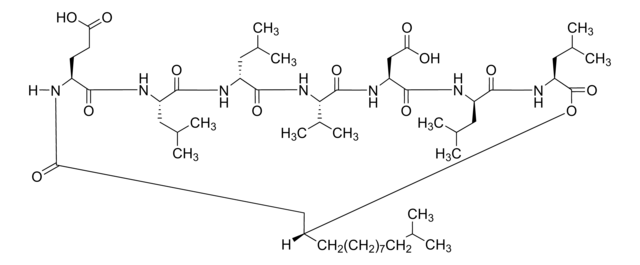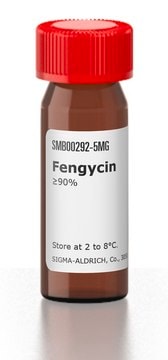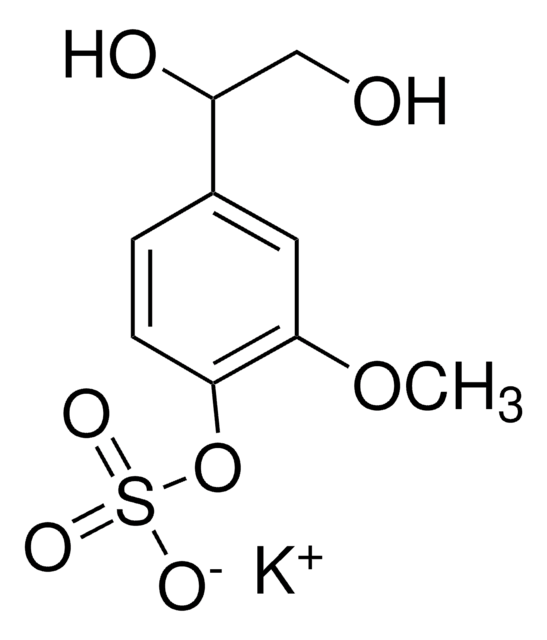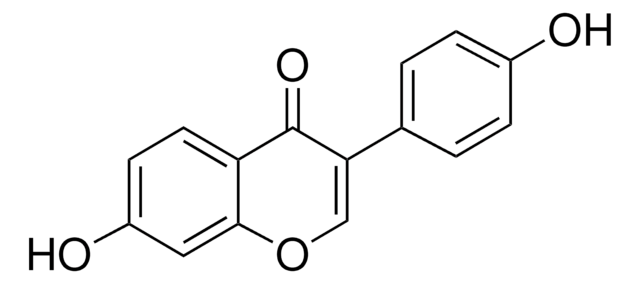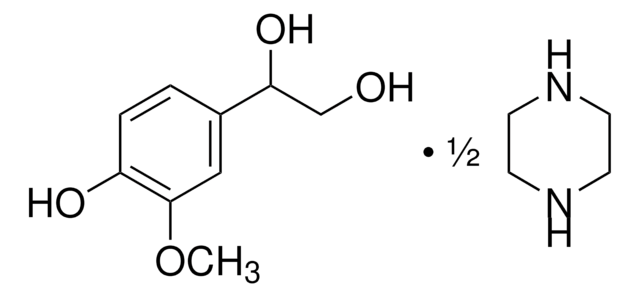I1774
Iturin A from Bacillus subtilis
≥95% (HPLC), suitable for microbiological culture
Sign Into View Organizational & Contract Pricing
All Photos(2)
About This Item
Recommended Products
product name
Iturin A from Bacillus subtilis, ≥95% (HPLC)
biological source
Bacillus subtilis
Quality Level
Assay
≥95% (HPLC)
form
powder
technique(s)
microbiological culture: suitable
color
white to yellow
solubility
ethanol: soluble 9.80-10.20 mg/mL
antibiotic activity spectrum
fungi
Mode of action
cell membrane | interferes
storage temp.
2-8°C
Application
Iturin A was used in the study of Bacillomycin D (an iturin with antifungal activity against Aspergillus flavus).
Biochem/physiol Actions
IturinA exhibits strong antifungal activity against pathogenic yeast and fungi. It interacts with the cytoplasmic membrane of the target cell forming ion conducting pores. Its mode of action could be attributed to its interaction with sterols and phospholipids. The compound causes the release of exo-vesicles from human erythrocytes.
Other Notes
A family of lipopeptides characterized by a heptapeptide cyclized with a C13-C17 β-amino fatty acid. Composed mainly of C14-C15 β-amino acids.
Storage Class Code
11 - Combustible Solids
WGK
WGK 3
Flash Point(F)
Not applicable
Flash Point(C)
Not applicable
Personal Protective Equipment
dust mask type N95 (US), Eyeshields, Gloves
Certificates of Analysis (COA)
Search for Certificates of Analysis (COA) by entering the products Lot/Batch Number. Lot and Batch Numbers can be found on a product’s label following the words ‘Lot’ or ‘Batch’.
Already Own This Product?
Find documentation for the products that you have recently purchased in the Document Library.
Customers Also Viewed
A L Moyne et al.
Journal of applied microbiology, 90(4), 622-629 (2001-04-20)
In a search for an antifungal peptide with a high activity against Aspergillus flavus, Bacillus subtilis AU195 was selected from a collection of isolates with antagonistic activity against A. flavus. To identify the antifungal peptides, a protein purification scheme was
Stephen Moran et al.
FEMS microbiology letters, 304(1), 69-73 (2010-01-15)
Bacillus sp. strain CS93, which was previously isolated from Pozol, was previously shown to produce iturin A, bacilysin and chlorotetaine. To investigate the biosynthetic mechanism of chlorotetaine production, the bac genes were amplified from genomic DNA of Bacillus sp. CS93
Feng-Chia Hsieh et al.
Current microbiology, 56(1), 1-5 (2007-11-21)
Lipopeptides represent a unique class of bioactive microbial secondary metabolites, and iturin A shows attractive antibiotic properties among them. This study compares three methods, such as yeast/fungal growth inhibition assay, quantitative high-performance liquid chromatography (HPLC) and polymerase chain reaction (PCR)
Jun Yuan et al.
Journal of basic microbiology, 52(6), 721-730 (2012-05-15)
The primary mechanism underlying antagonism among microorganisms is the production of antagonistic substances called antibiotics that inhibit the growth of pathogens. In this study, the antagonistic substances produced by the Bacillus amyloliquefaciens strain NJN-6 that had antifungal activity against Fusarium
M A Klich et al.
Mycopathologia, 127(2), 123-127 (1994-08-01)
The removal of many synthetic fungicides from the market has created a demand for new, environmentally safe fungicides. Iturin A, a cyclic lipopeptide produced by Bacillus subtilis, has strong antifungal properties and low mammalian toxicity. To determine the efficacy of
Our team of scientists has experience in all areas of research including Life Science, Material Science, Chemical Synthesis, Chromatography, Analytical and many others.
Contact Technical Service